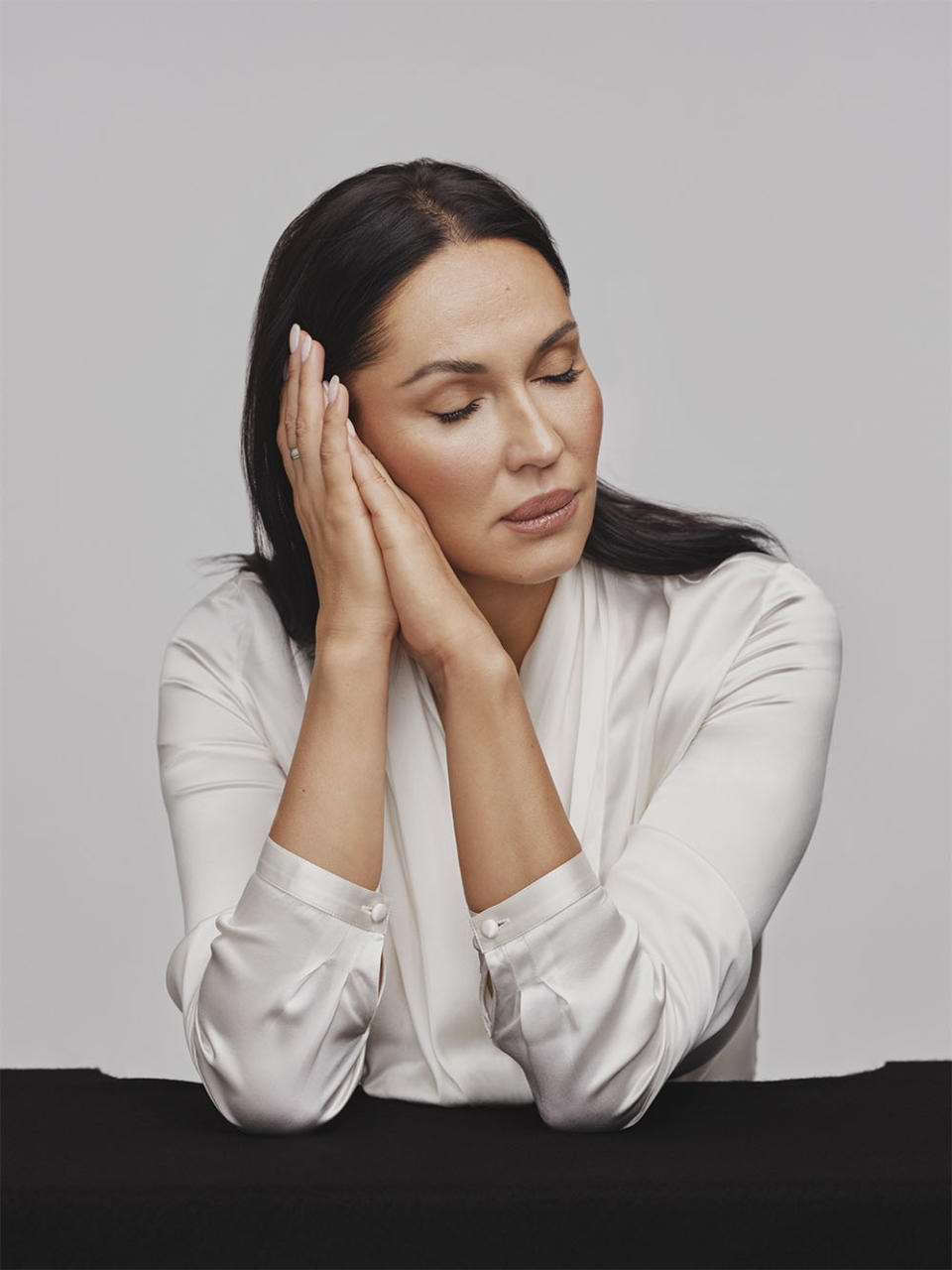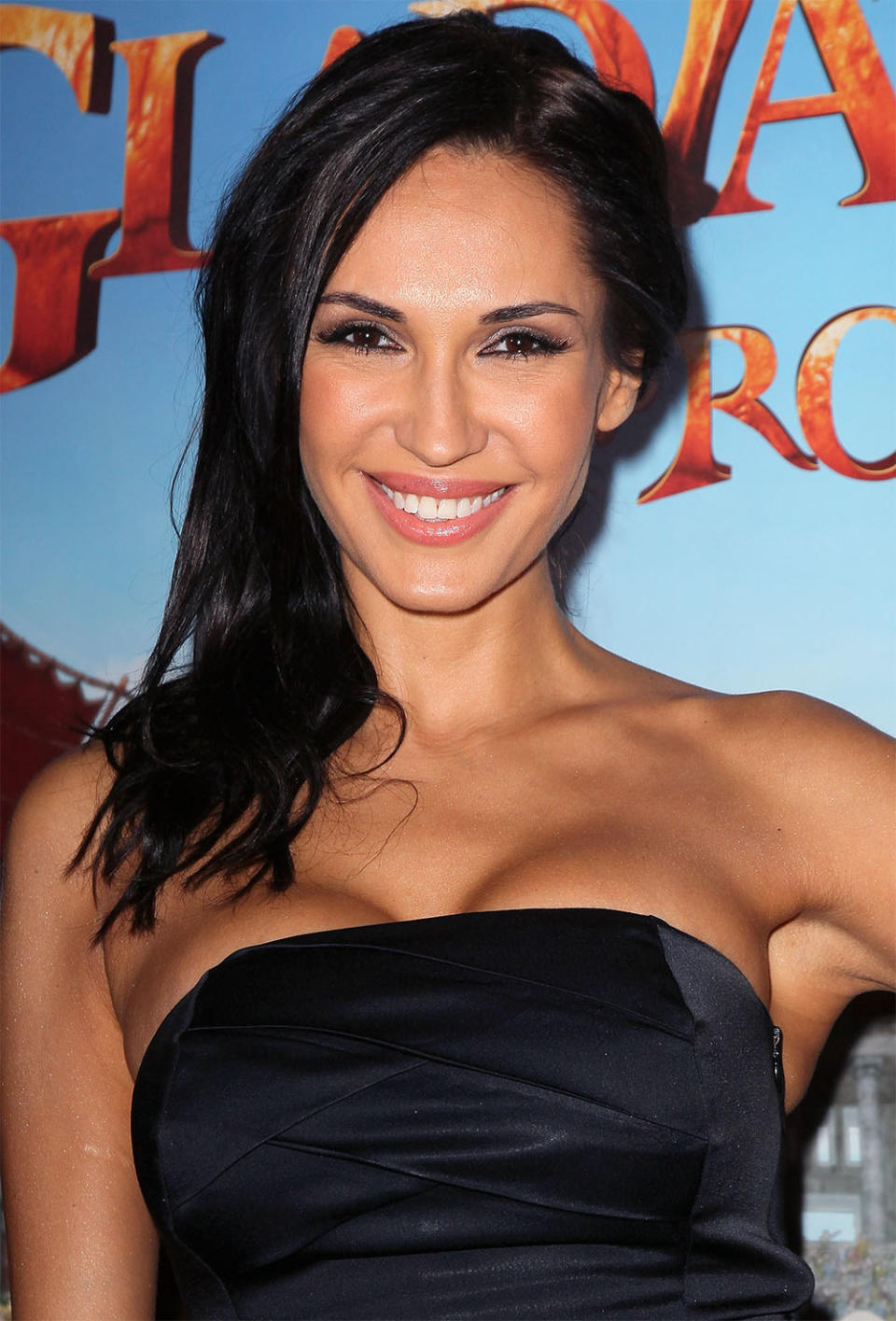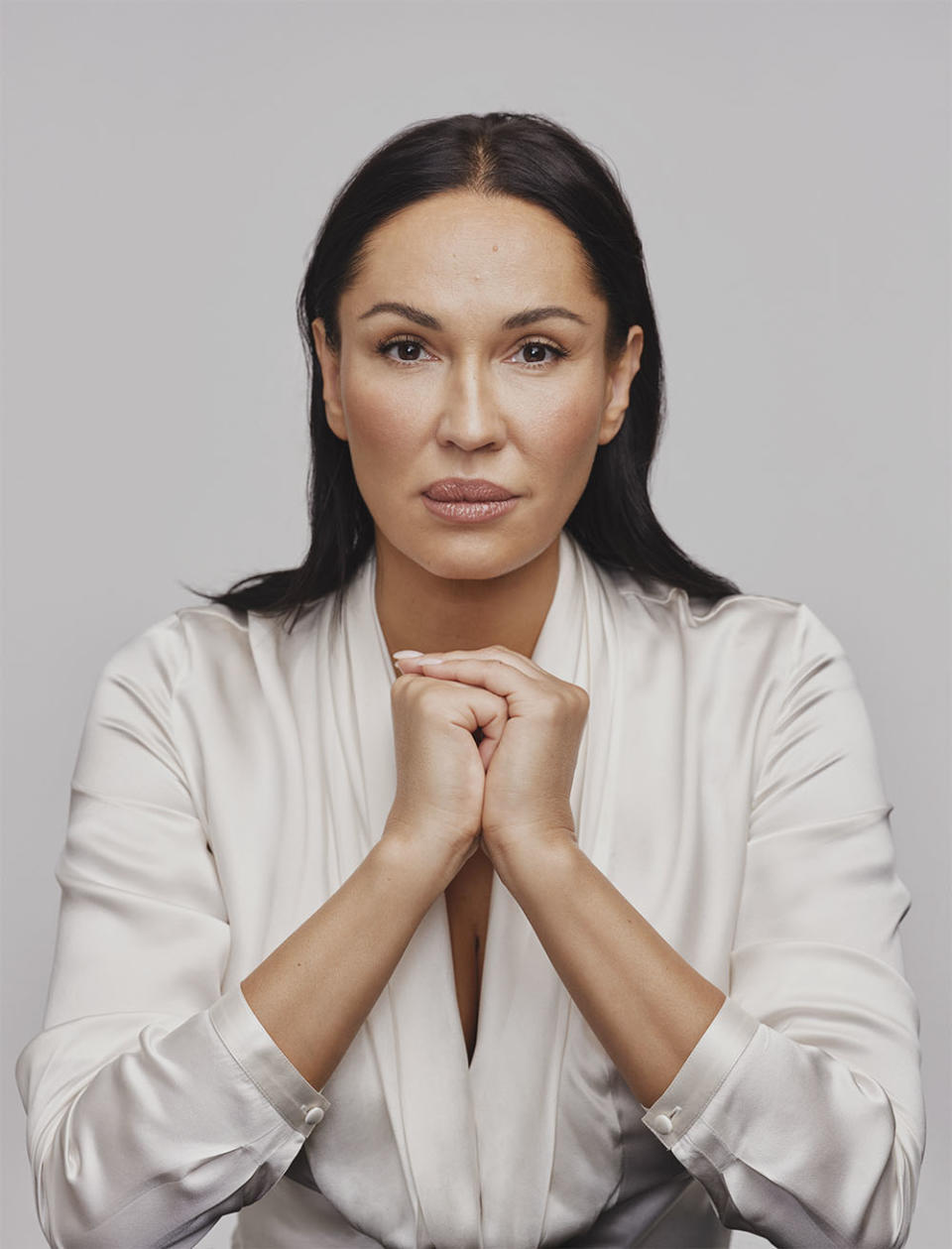Harvey Weinstein’s “Jane Doe 1” Victim Reveals Identity: “I’m Tired of Hiding”

On Dec. 19, Evgeniya Chernyshova was driving to pick out a Christmas tree near her home in Los Angeles when she got a message that she’s been waiting for, in some form or another, for five years. “We have a verdict,” read the text from Chernyshova’s attorney, Dave Ring. The 43-year-old mother of three stopped in the middle of the street, flipped on her emergency flashers and burst into tears.
As she sat in her car with her 16-year-old daughter and 23-year-old son, Chernyshova learned that a jury had convicted Harvey Weinstein of raping her in a hotel room in 2013. “I had to ask my daughter if I understood the English correctly,” says Chernyshova, who was born in Russia. “She’s like, ‘Why are you crying, mom? It’s good.'”
More from The Hollywood Reporter
Emmanuelle Debever, French Actress Who Accused Gerard Depardieu of Sexual Assault, Dies by Suicide
Second Actress Files Sexual Assault Charges Against Gerard Depardieu
Weinstein’s LA trial had a mixed outcome for his victims: Of the four women the former mogul was charged with raping and assaulting in L.A., Chernyshova’s case was the only one to result in a conviction. She was the first of 44 witnesses the prosecution called to testify in the trial, and she is the only person the court allowed to deliver a statement at Weinstein’s sentencing on Feb. 23.
The judge sentenced Weinstein to 16 years for forcible rape, forcible oral copulation and penetration by foreign object. He will serve that time on top of the 23-year sentence he is currently serving in New York, an outcome which virtually guarantees the 70-year-old former producer will die in prison. Weinstein has long denied the allegations.
Starting when she reported the crime to police in 2017, Chernyshova, a former model and actress, went through the process of coming forward about Weinstein anonymously, known only as Jane Doe 1. Until now. “I’m tired of hiding,” says Chernyshova, speaking publicly for the first time. “I want my life back. I’m Evgeniya, I’ve been raped. This is my story.”
Over a long, often tearful interview in the Manhattan Beach office of her attorney, Chernyshova spoke about her violent encounter with Weinstein, her decision to come forward at the urging of her daughter and the lonely experience of being a Jane Doe, which she says prevented her from connecting with other victims and being open with friends and acquaintances about what she was living through. “I did it because I was ashamed and humiliated,” Chernyshova says of remaining anonymous. “I thought it was a good decision to protect my kids. But it was a horrible decision for myself because I’ve been cut off from everyone. It isn’t right to go through this hell alone.”
Today, Chernyshova runs a floral design business in Beverly Hills called Bottega Bouquet. She told only a small circle of people, including her priest and her children’s nanny, about the rape that dramatically reshaped her life 10 years ago. “Part of me, I’m fearing for my future,” she says of speaking publicly now. “But I’m proud of myself. If I continue to hide, I cannot do anything. I will just be there with my pain.”

Chernyshova was born in Siberia and began modeling at age 15. “A lot of people think it’s just ice there and white bears,” she says of her home. “But it’s beautiful in the summertime, a lot of green and flowers.” As a child, she aspired to be an obstetrician, but after winning a local beauty contest, Chernyshova got a modeling contract and quickly began walking runways around the world, eventually settling in Italy, marrying and picking up some small roles as an actress. “I was full of energy and excited about my life,” she says. “I had a very beautiful career there. I’ve been very lucky for the girl from Siberia.”
During Oscars week in 2013, Chernyshova saw Weinstein, whom she had met briefly once at an entertainment industry gathering in Rome, at the Los Angeles Italia Film Festival, which was honoring Al Pacino at the Chinese Theater in L.A. Weinstein introduced himself, apparently unaware that he and Chernyshova had met before, and Chernyshova thought nothing else about the encounter. That night, Chernyshova says she went back to her room at the Mr. C Beverly Hills Hotel alone. She had changed from her red carpet dress into a robe when she got a call from the front desk that she had a guest downstairs. “I heard somebody talking loudly in the background, and then he took the phone and said, ‘It’s Harvey and we have to talk,’ And I was like, ‘What?’ So confused. I said, ‘We can talk tomorrow.'” A few minutes later, as she was removing her makeup, Chernyshova heard a loud knock on her hotel room door. “He’s like, ‘Hey, it’s Harvey Weinstein. Open the door. We have to talk. I’m not going to fuck you, I just have to talk to you.'”

Chernyshova, who was married at the time and on a business trip, says she felt self-conscious about a strange man loudly talking at her hotel room door. She didn’t feel she was in danger, she says, she felt embarrassed, and she wanted him to stop, so she opened the door. “And that is the thing I have regretted for the last 10 years — that I did open this door,” she says. “He just walked through me and went directly to the chair. He was like, ‘We’re just talking. There’s nothing happening. Why are you so nervous?'” Weinstein removed his jacket, Chernyshova says, and started to get annoyed with her. “Something clicked, like a change in his eyes,” she says. “I realized that something was wrong.”
Chernyshova at first blamed her broken English, and thought maybe she wasn’t communicating clearly. She showed Weinstein her wedding ring, and talked about her children, to express more emphatically that she was romantically unavailable and wanted him to leave. “He opened his pants, and I became hysterical,” she says. “I was continuing to show my kids’ pictures, to try to convince him that, ‘I have kids, please do not do that.’ But he did what he did. He assaulted me in the bedroom, and then he dragged me to the bathroom and he raped me there.” After Weinstein finished, he told Chernyshova he was going to send her tickets to an event, and he left. Chernyshova took a shower, cleaned her hotel room and called her nanny back in Italy. “I felt very, very dirty and like I have to die,” she says.
After the rape, she battled depression, sometimes drinking heavily, and she separated from her husband, who has since died. “I was hating myself,” Chernyshova says. “I was thinking all the time, ‘There were a lot of beautiful women and stars there, and he chose you. So it’s you who did something.’ I was depressed, I was mentally not stable. I was out of my mind.” Chernyshova believes she felt this guilt for reasons that are both cultural and generational. “I love my mom, but her generation raised me like, ‘If something bad happened to you, you’re the one who’s wrong. It’s your responsibility.'”
In September of 2017, a conversation with her then-16-year-old daughter, Maria, would begin a shift in Chernyshova’s perspective. “Everything pretty much started back when I came forward to my mom about the sexual assaults that I went through as a sophomore in high school,” says Maria, who is now 21. Chernyshova wanted Maria to tell police about the boy who had assaulted her, and was continuing to bully her, and Maria protested. “I told her that she would never really be able to understand me,” Maria says. “And she told me that she does understand, because she has been raped.” When mother and daughter realized that they shared this painful bond, Maria says, it was devastating. “We were both crying,” Maria says, “I knew that she must have suffered through a lot.”
Maria made her mother agree to a pact. “I told her that there was only one condition that I was gonna be able to [report my case], and that’s if she also came forward with her case.” Maria went first, and Chernyshova was referred to Ring, a trial attorney who often represents sexual assault victims, to represent her daughter. Chernyshova still felt too nervous to talk to police about her own assault, but in a remarkable coincidence of timing, just weeks after Maria spoke to police, the New York Times and New Yorker published stories with sexual assault allegations about Weinstein, and Evgeniya realized that her rape was not a singular incident. She told Ring about it, and he brought her to the detectives at the LAPD in October of 2017. “She was scared, confused, overwhelmed,” Ring says. “She knew that she had to do something with this information.”
That was just the first step in what would be a very long road, as police in L.A. undertook a lengthy investigation, and detectives and prosecutors on the case changed. In January of 2020, on the first day of Weinstein’s long-awaited trial in New York, he was charged with Chernyshova’s rape in Los Angeles. “The justice system should never take this long, but it did for a lot of different reasons, and she endured it and got through it,” Ring says. “But it was very difficult for Evgeniya because she kept being told, ‘Hey, it’s gonna happen, in spring, in summer,’ and a year goes by. It just kept being pushed and pushed and pushed. And so she was living almost undercover for this time.”
In October of 2022, Chernyshova took the stand as Jane Doe 1 for three days of testimony in Weinstein’s trial, which she calls, “the worst experience of my life.” She couldn’t sleep during that period, and was regularly vomiting from the stress. “The defense lawyers’ techniques, how they harass and humiliate you, it is brutal,” she says. Weinstein’s attorney, Alan Jackson, asked Chernyshova why she posted an Instagram photo shortly after the assault in which she was shown smiling with Pacino at the Los Angeles Italia Film Festival event, captioned with smile emojis. Chernyshova said she was trying to keep up a public appearance of being fine. “He wanted to make me look not credible,” she says of the defense attorney. “You don’t go out, you don’t smile, you have to die. If you’ve been raped, you have to die, that’s it. It’s no life after.”
Immediately after the trial, jurors told the Associated Press that Chernyshova’s composure on the stand was key to their conviction of Weinstein in her case. The outcome was different for the other three women: the jury voted to acquit Weinstein on one of the other victim’s cases, and failed to reach a verdict on the other two. “I believe all of the victims who testified,” Chernyshova says. “All of them. And I want to say this — this is not only my victory, this is our victory.”

On Feb. 9, right before a 10-year statute of limitations was up, Chernyshova filed a civil case against Weinstein seeking unspecified compensatory and punitive damages for sexual battery, false imprisonment, negligence and intentional infliction of emotional distress.
Even after the jury had come to its verdict, Weinstein’s defense team raised questions about Chernyshova’s character in an effort to get a new trial. At Weinstein’s sentencing, the defense suggested that her civil suit was evidence of a financial motive, and said the court erred when it didn’t allow the jury to consider what Jackson called “sexually explicit text messages” between Chernyshova and Pascal Vicedomini, the founder of the film festival she was attending. The judge denied the motion, noting, “I don’t think it makes her testimony false.”
Chernyshova, who attended the sentencing with Maria, tearfully delivered a victim statement, telling the judge, “I will live with this for the rest of my life. So should he.” Weinstein spoke as well, maintaining his innocence. “This is a made-up story,” Weinstein said, while seated in a wheelchair and wearing a gray L.A. County Jail jumpsuit. “Jane Doe 1 is an actress, and she turned the tears on.”
Immediately after the sentencing, Chernyshova said, “I feel free, and a heavy weight and burden has been lifted off my chest. I am looking forward to a good night’s sleep.”
Chernyshova has shifted careers since her rape, starting her floral design business and getting certified as a doula, helping to deliver more than 60 babies. Sometimes, pregnant women would Google Chernyshova and be confused. “They were like, ‘You’re not a doula. You’re an actress. You’re a public person. Why are you doing this?’ I had to answer a lot of questions.”
Chernyshova is looking forward to being able to share the full story with people she meets from now on. “I finally have a voice and I can speak,” she says. “As much I was trying to destroy myself, to punish myself, I will do as much to rebuild myself. And to help other people.” Together with Maria, she is considering starting a foundation to help other Jane Does. “I see my future as beautiful,” Chernyshova says. “It’s a good one.”
For Chernyshova’s full victim statement, click here.
A version of this story will appear in the March 1 issue of The Hollywood Reporter magazine. Click here to subscribe.
Best of The Hollywood Reporter

